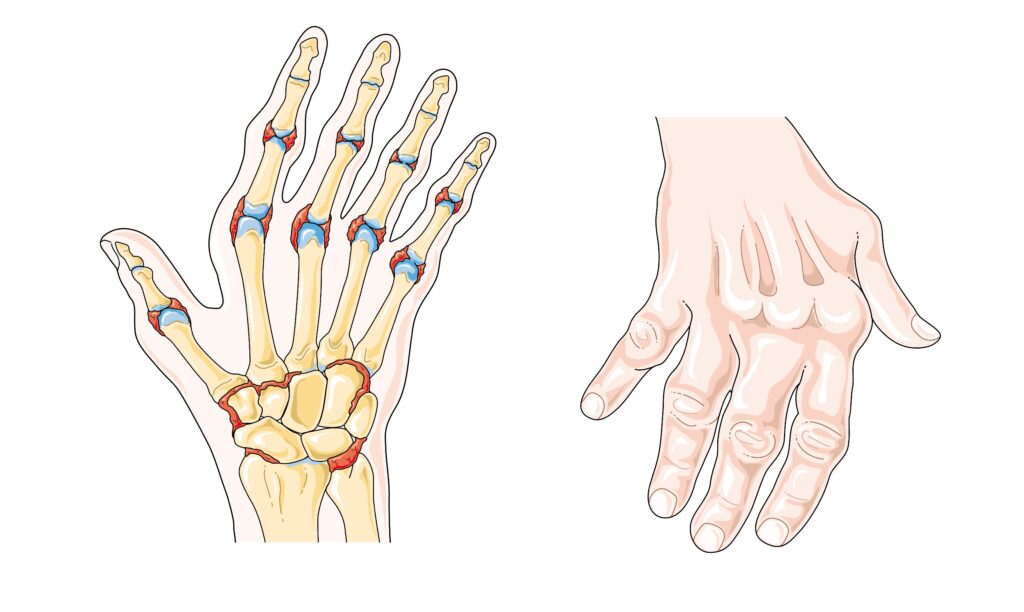Immune System Disorders: The Silent Epidemic on the Rise
Immune system disorders have become a significant global health issue, silently affecting millions worldwide. These conditions arise when the body’s immune system attacks its own tissues, causing inflammation and long-term health issues. Understanding the causes, symptoms, and treatments is essential for addressing this growing epidemic.
Table of Contents
ToggleWhat Are These Disorders?
When the immune system, which usually defends against harmful agents, mistakenly targets healthy cells, immune system disorders occur. This can lead to chronic health conditions such as:

- Rheumatoid Arthritis: Causes pain, swelling, and stiffness in the joints.
- Lupus: Affects multiple organs, including the skin, kidneys, and heart.
- Multiple Sclerosis: Damages the central nervous system and can cause paralysis.
- Type 1 Diabetes: The immune system destroys insulin-producing cells in the pancreas.
There are over 80 different immune system disorders, each with varying symptoms and effects on the body.
Why Are These Disorders on the Rise?
The rising number of cases of immune-related health issues has researchers concerned. Several factors contribute to this increase, including:

- Environmental Influences: Toxins, pollution, and changes in diet, especially with the rise of processed foods, are believed to negatively impact immune system function. Environmental Health Perspectives explores this further.
- Lifestyle Factors: Lack of physical activity and high levels of stress could be key contributors to immune system dysfunction.
- The Hygiene Hypothesis: This theory posits that reduced exposure to microbes in childhood can lead to an overactive immune system in later life, increasing susceptibility to these conditions. Explore this at Nature Reviews Immunology.
- Genetic Contributions: While genetics play a role, environmental factors are seen as the primary cause of the increasing trend in these disorders.
For more information on causes, visit the National Institutes of Health (NIH).
Symptoms of Immune System Disorders
Symptoms vary widely depending on the specific disorder, but common signs include:

- Chronic Fatigue: Persistent tiredness not alleviated by rest.
- Joint Pain and Swelling: Especially in the hands and knees.
- Skin Rashes: Discolored, itchy, or scaly patches, often seen in lupus.
- Digestive Issues: Symptoms like bloating, diarrhea, or constipation in disorders like celiac disease.
- Recurring Fever: A low-grade fever that appears without any obvious cause.
Because these symptoms overlap with many other conditions, getting an accurate diagnosis from a healthcare provider is essential.
Advances in Treatment
While most immune system disorders don’t have a cure, treatment options have improved significantly. These treatments focus on controlling symptoms and regulating the immune response:

- Medications: Drugs like immunosuppressants and biologics help reduce inflammation and manage the immune system’s overactivity.
- Lifestyle Modifications: An anti-inflammatory diet, exercise, and stress reduction techniques can help alleviate symptoms.
- Personalized Medicine: Advances in genomics and tailored treatments allow for more effective management of these disorders.
For the latest information on treatment options, visit Mayo Clinic.
Preventing and Detecting Immune System Disorders
Though many of these disorders can’t be prevented entirely, adopting a healthy lifestyle can reduce the risk and severity of symptoms:
- Balanced Diet: Eating nutrient-rich foods that support immune health.
- Exercise: Regular physical activity reduces inflammation and boosts immune function.
- Stress Reduction: Practices such as yoga and meditation can support overall immune system health.
- Routine Checkups: Early detection through regular health screenings is essential for managing these conditions effectively.
Mental Health Considerations
Living with a chronic immune system disorder can also impact mental health. The stress of managing pain and fatigue may lead to anxiety and depression. Seeking mental health support, such as therapy or support groups, is essential in managing the emotional toll of these conditions.
Conclusion
Immune system disorders are a growing concern globally. Understanding the causes, recognizing the symptoms, and taking preventive measures can help improve the lives of those affected. Although these disorders cannot always be cured, advancements in research and treatment offer hope for better management and quality of life.
If you suspect you or someone you know may have an immune system disorder, seek professional medical advice promptly. Together, we can work to address this silent epidemic.

For additional resources, visit the World Health Organization (WHO).
If you’re interested in learning more about health and wellness, check out other insightful articles on our website:
- The Nutritional Powerhouse: Why You Should Include Avocados in Your Diet
- Influenza Virus: Symptoms, Prevention, and Long-Term Effects Explained
These posts delve into various aspects of health and provide actionable insights to improve your well-being.

